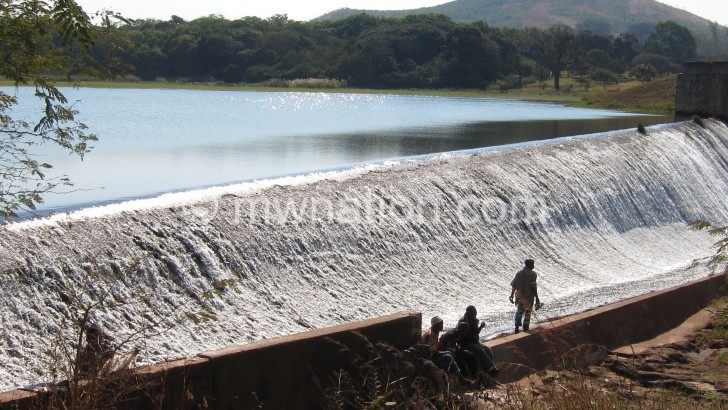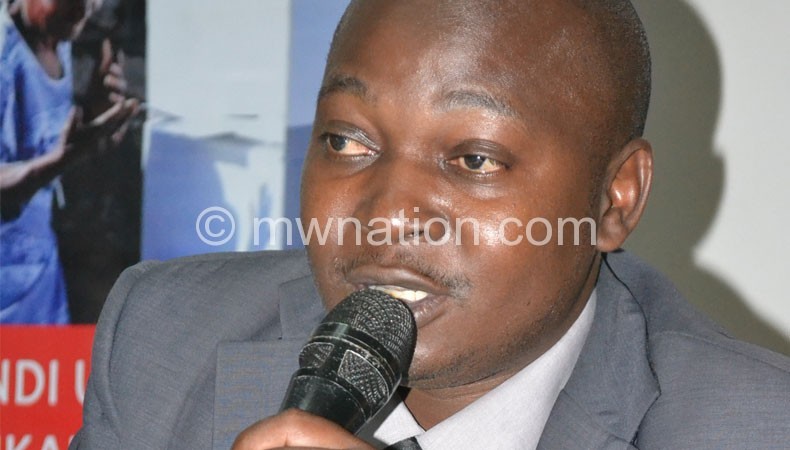LWB joins ISO certified water utilities
Service delivery achievements by the Lilongwe Water Board (LWD) recently earned it an ISO 9001 certification by the International Organisation for Standardisation. Our reporter JACOB NANKHONYA caught up with LWB chief executive officer SILLI MBEWE and had this conversation on the certification and other related matters. Excerpts.

Congratulations! Tell us about the award and how LWB qualified?
. ISO 9001 is an international standard that specifies requirements for quality management systems. It is administered by the International Organisation for Standardisation (ISO), an international agency composed of standards bodies of more than 160 countries. The attainment of ISO 9001 certification is an internationally recognised demonstration that an organisation or company consistently provides products and services that meet customer and regulatory requirements. It enhances an organisation’s credibility by showing customers that its products and services meet expectations. Put simply, ISO certification shows that your company or organisation can be trusted and that the products and services delivered are of international quality.
What is involved in certification?
The process involves implementing the requirements of ISO 9001:2015, which entail a rigorous process of submission of documents on an organisation’s internal processes, procedures and standards, and the completion of a certification audit which is carried out by an independent certification body accredited to ISO confirming that the organsation meets those standards. In order to qualify LWB, among other things, embarked on a journey from 2020 when it did an internal gap analysis, developed a Quality Management System complete with standard operating procedures which it aligned to the ISO standards. It then identified and trained its internal auditors for pre-certification audits. Thereafter, it went through a rigorous external audit undertaken by an ISO certified international auditor from Australia in August 2022. We are proud and happy to have passed the certification audit at first attempt, thereby joining an elite club of only six water utilities in this region of Africa.
. What do international best practices entail?
. ISO 9001 certification implies a level of consistent application of quality management system standards and operating procedures. These relate to system and procedures documentation and application, clear roles and responsibilities of the management team, management of resources, including employees and the work environment, product realisation, measurement, analysis, and improvement of the quality management system through activities such as internal audits and corrective and preventive actions.
What challenges did you face in search of the ISO certification?
It has been a rigorous journey. The next biggest challenge is probably now, where having attained the certification, we must sustain and enhance the attained quality management standards, to ensure that the certification is maintained during subsequent surveillance audits. The main challenge we have encountered in the implementation of the water and sanitation project has been the fact that we have been working on a river water supply system which has entailed that at times we have had to inconvenience our customers with water supply outages particularly where we have been interconnecting the new system to the existing network.
. How do you manage to sustain such high standard service delivery at a time the country is facing tough economic times?
. For us as LWB, having realised that as a utility company we operate in an economic environment that is affected by variable market factors, we developed and incorporated a resilient business management model to guide our operations and service delivery mandate. We realised that even in service delivery, it is vital to incorporate a business orientation to ensure that you sustain your product line. That is why even within our ISO 9001 processes, we developed a business continuity plan to ensure service continuity even in an adverse operating environment. Further, we have invested in institutional capacity strengthening because we realised that as we fix the pipes, we also needed to fix the institution that fixes the pipes. Our human resource has been our other valuable asset.
What do you plan to achieve by the time your water and sanitation project expires in 2024?
The project development objective is improved water supply services and access to safely managed sanitation. By the end of the project, we look forward to a rehabilitated and upgraded water distribution network with improved water supply to our customers, an extended network that would have reached to hitherto unserviced areas that include Nanjiri, Mpingu, Dzenza and Nalikule; improved sanitation, both onsite and wastewater sanitation in the city of Lilongwe and, of course, a modernised customer-focused water and sanitation utility.
Besides the water and sanitation project, what other development projects do you have?
Other than this project, which is supported by the World Bank at a financing of $145 million, we are also implementing the Lilongwe Water and Resource Efficiency Programme (LWREP) with funding from the European Investment Bank (EIB). In this project we are raising the Kamuzu Dam I by an additional seven metres to increase the raw water storage capacity from five million cubic metres to 25 million cubic metres. The project is complete and ready for commissioning this month. Under the same programme, we are also implementing a supervisory control and data acquisition system for real-time control and monitoring of our network. We have also accessed further financing from the EIB for the construction of a new treatment plant with an additional production capacity of 50 000 cubic metres per day. We are further implementing the project on strengthening the capacity of LWB in non-revenue water management with technical support from Jica. We are also implementing the solar powered Mbavi Groundwater Development project, wholly financed from our own revenues. Meanwhile, we are engaging the EIB for implementation of a project on use of renewable energy in water production at our main treatment works and the World Bank for a successor of the water and sanitation project. Just to highlight that, within the same period, in August 2022, LWB underwent an international private shadow credit rating assessment and attained a Triple B rating which puts it at a favourable position to access infrastructure financing.
As the board’s CEO, what is your vision? My vision is to have LWB as a viable utility of service excellence. A utility that will reach out to 100 percent service coverage within its designated supply area. A customer-focused utility that will sustain and improve its financial base that will remain resilient to both economic and climate shocks. A utility of enhanced institutional capacity, with equal opportunies in decision-making across the board that shall lead the way in the water and sanitation sector in Africa.






One Comment